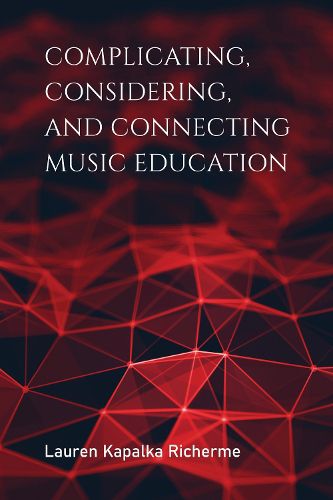Readings Newsletter
Become a Readings Member to make your shopping experience even easier.
Sign in or sign up for free!
You’re not far away from qualifying for FREE standard shipping within Australia
You’ve qualified for FREE standard shipping within Australia
The cart is loading…






In Complicating, Considering, and Connecting Music Education, Lauren Kapalka Richerme proposes a poststructuralist-inspired philosophy of music education. Complicating current conceptions of self, other, and place, Richerme emphasizes the embodied, emotional, and social aspects of humanity. She also examines intersections between local and global music making. Next, Richerme explores the ethical implications of considering multiple viewpoints and imagining who music makers might become. Ultimately, she offers that music education is good for facilitating differing connections with one’s self and multiple environments. Throughout the text, she also integrates the writings of Gilles Deleuze and Felix Guattari with narrative philosophy and personal narratives. By highlighting the processes of complicating, considering, and connecting, Richerme challenges the standardization and career-centric rationales that ground contemporary music education policy and practice to better welcome diversity.
$9.00 standard shipping within Australia
FREE standard shipping within Australia for orders over $100.00
Express & International shipping calculated at checkout
In Complicating, Considering, and Connecting Music Education, Lauren Kapalka Richerme proposes a poststructuralist-inspired philosophy of music education. Complicating current conceptions of self, other, and place, Richerme emphasizes the embodied, emotional, and social aspects of humanity. She also examines intersections between local and global music making. Next, Richerme explores the ethical implications of considering multiple viewpoints and imagining who music makers might become. Ultimately, she offers that music education is good for facilitating differing connections with one’s self and multiple environments. Throughout the text, she also integrates the writings of Gilles Deleuze and Felix Guattari with narrative philosophy and personal narratives. By highlighting the processes of complicating, considering, and connecting, Richerme challenges the standardization and career-centric rationales that ground contemporary music education policy and practice to better welcome diversity.